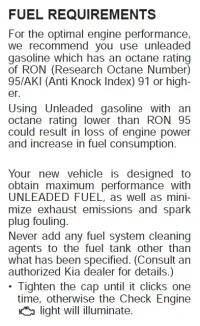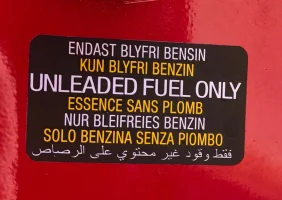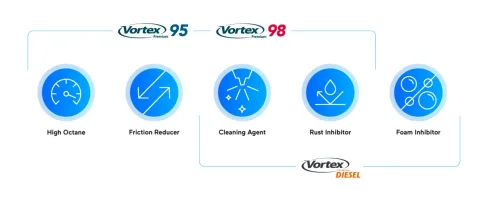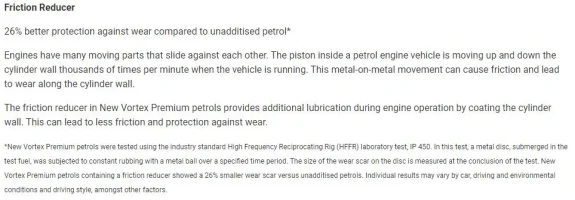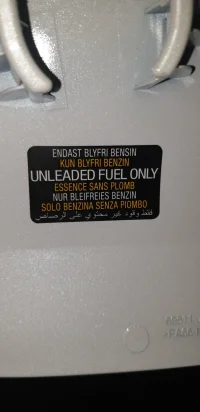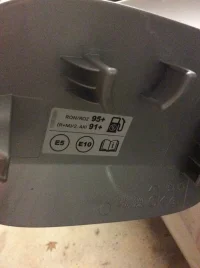Using less than
RON 95/
AKI 91 could result in power loss and increased fuel consumption.
View attachment 31271
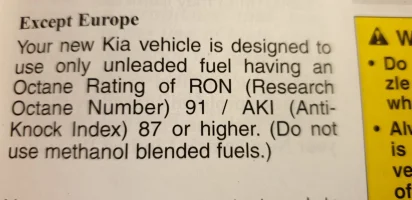
That's straight from the owners manual in an Australian delivered car.
The fuel filler door does then say RON95:
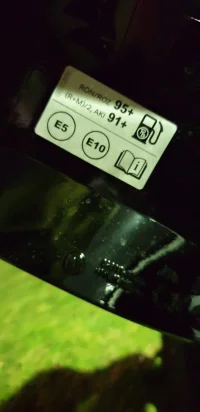
As well as allowing for E5 and E10. I suspect the sticker on the fuel filler door is generic (E5 isn't a thing here either), whilst the manual is what should be taken as gospel (it also matches the rating that Kia Australia publish in the specs on the local website).
I am conflicted on what to use. Sure, RON98 apparently has better additives, but many of the benefits of the detergent packs in it are moot on a DI engine (because the fuel isn't washing the valves or low-pressure injectors).
RON98 will resist knock better, but a stock tune won't push the timing hard enough that this is likely to be an issue (sure, once tuned, things change). It's basically impossible for a stock tune to get any more power or efficiency out of RON95 or RON98 fuel than it will get out of good RON91 fuel.
RON91 is, right now as I type this, about 25c/L cheaper than RON98 (or to put it another way, about 17% cheaper).
E10 is 2c/L cheaper than RON91. To put that another way, ~1.5% cheaper. The problem here is that ethanol is about 30% lower in stored energy than petrol, so you're down about 3% on specific power (energy per litre) - meaning, all other things equal, you're going to burn about 3% more of it them you would RON91 to go the same distance. I don't know about you, but paying 1.5% less to go 3% less distance doesn't sound like good economic sense to me, unless you're a politician with money invested in ethanol production and you've managed to pass laws mandating that a percentage of all fuel sales must be E10...


